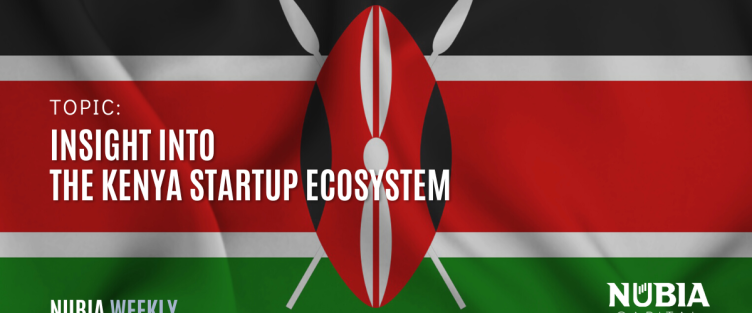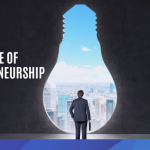Introduction
Kenya, which is ranked 62 globally and 1 for startups in Eastern Africa, is a regional innovator leader. The nation of East Africa is the ideal location for businesses in the fields of energy and the environment, food technology, and transportation.
Kenya is the top location for future Japanese investment, according to a survey by the Japan External Trade Organization (Jetro). Kenya earned the top spot as a result of its developing startup industries and potential for collaboration, rising infrastructure demand, the potential of geothermal energy, Kenya’s role as an economic hub in East Africa, economic stability, Japanese ODA and investment projects, the expansion of the auto industry, market size, and potential future growth.
According to the StartupBlink Global Startup Ecosystem study, two (2) cities in Kenya are ranked. Kenya’s top-ranked city is:
Nairobi, Nairobi symbolises Africa as the continent’s top startup ecosystem and is frequently referred to as Silicon Savannah. The success of M-Pesa has led to a flourishing tech industry in the city, and organisations like Konza Techno City and Metta support and promote the city’s entrepreneurial culture.
Nairobi’s startup ecosystem is ranked 163rd globally and has lost 27 points since 2021 due to a downward trend. Nairobi also comes in first place in Kenya and in Eastern Africa.
Fintech, energy and environmental, and foodtech firms might choose Nairobi as a location. The StartupBlink Map shows a sample of 43 Fintech companies in Nairobi, 38 Energy & Environment startups in Nairobi, and 21 Food Tech startups in Nairobi as the three most popular industries in Nairobi.
A hub for investments in Africa is emerging in Mombasa, a city known for its tourism. The city now has a large number of technological businesses, which bring in millions of shillings a year.
The Mombasa Startup Ecosystem is currently ranked 891 internationally and has dropped -135 positions since 2021. Moreover, Mombasa is ranked second in Kenya and ninth in Eastern Africa.
The rise of fintech in Kenya – M-Pesa
M-Pesa, short for “Mobile Money” in Swahili, was launched in Kenya in March 2007 by Safaricom, the country’s leading mobile network operator, in partnership with Vodafone. It was initially designed as a simple mobile phone-based money transfer service.
At the time of its launch, a large portion of Kenya’s population lacked access to traditional banking services. M-Pesa aimed to bridge this gap by providing a convenient and accessible way for people to send and receive money, pay bills, and access financial services using their mobile phones.
M-Pesa launched its money transfer service, allowing users to send and receive money via text messages. It also introduced the ability to pay utility bills and purchase airtime. M-Pesa partnered with banks to offer M-Shwari, a mobile-based savings and loan product. In June 2010, M-Pesa crossed the 10 million customer mark. As at 2022, it had 51 million customers across Kenya, Tanzania, the Democratic Republic of Congo, Mozambique, Lesotho, Ghana and Egypt
Impact on Financial Inclusion: M-Pesa’s success has had a profound impact on financial inclusion in Kenya and beyond:
- It brought financial services to millions of previously unbanked and underbanked Kenyans, enabling them to save, borrow, and access a range of financial products.
- It reduced the reliance on cash transactions, enhancing security and transparency in financial transactions.
- It facilitated access to credit and insurance products, empowering individuals and small businesses to invest and grow.
- It enabled government agencies and NGOs to deliver social welfare payments and aid more efficiently.
M-Pesa continually evolved its technology to offer more services, including integration with third-party applications and services. This led to the development of a thriving fintech ecosystem in Kenya and its success in Kenya inspired its expansion into other African countries, including Tanzania, Ghana, and Mozambique. It also served as a blueprint for mobile money services worldwide. However, this would not be possible without the contribution of the Kenyan government who played a crucial role by creating a conducive regulatory environment that allowed M-Pesa to thrive while ensuring consumer protection and financial stability.

Challenges of the ecosystem
Among other challenges, there is an emphasis on the lack of diversity in this ecosystem. In a survey conducted by Disrupt Africa, Only 55 – 17.9 percent – of Kenyan tech startups have at least one woman within their founding team, meaning the country is more diverse in this regard than all of its fellow “big four” ecosystems – Egypt, Nigeria, and South Africa. However, this figure is still far too low for a leading ecosystem such as this. In another survey which goes deeper into the Kenyan ecosystem conducted by Kenyatta University (KU) and Kenya Industrial Research and Development Institute (KIRDI), the majority of the men leading start-ups were financed through equity and a mix of equity, loans and grants. The least popular method of financing for men-led start-ups was grants. On the other hand, women-led start-ups were financed mainly from loans and grants, and very few of them were from a mix of the three.
The report also states that sixty-nine (69) per cent of male-led start-ups had between 2 and 10 employees, with only 31 per cent women-led start-ups employing this number. Strikingly, no women-led start-up employed more than 21 employees insinuating that they were smaller in size and constrained financially wise.
Questions for the ecosystem?
Not just Kenya but the entire ecosystem is facing a great diversity issue. What are the root causes of this? Why are women-led organisations invested in less than their male counterparts? What are the consequences to this and how can we close the gap?

At Nubia Capital, we have a GENDER LENS STRATEGY.
We are committed to diversity and inclusion in our investment approach.
Our Gender Lens Strategy is an integral part of our investment philosophy.
Our Gender Lens Strategy is not just an initiative; it’s a commitment to a
more inclusive and successful future.
We believe in investing not only in companies but in the potential of all
entrepreneurs, regardless of gender.
This is the Nubia way and we are committed to creating a better and more inclusive African Startup Ecosystem.




